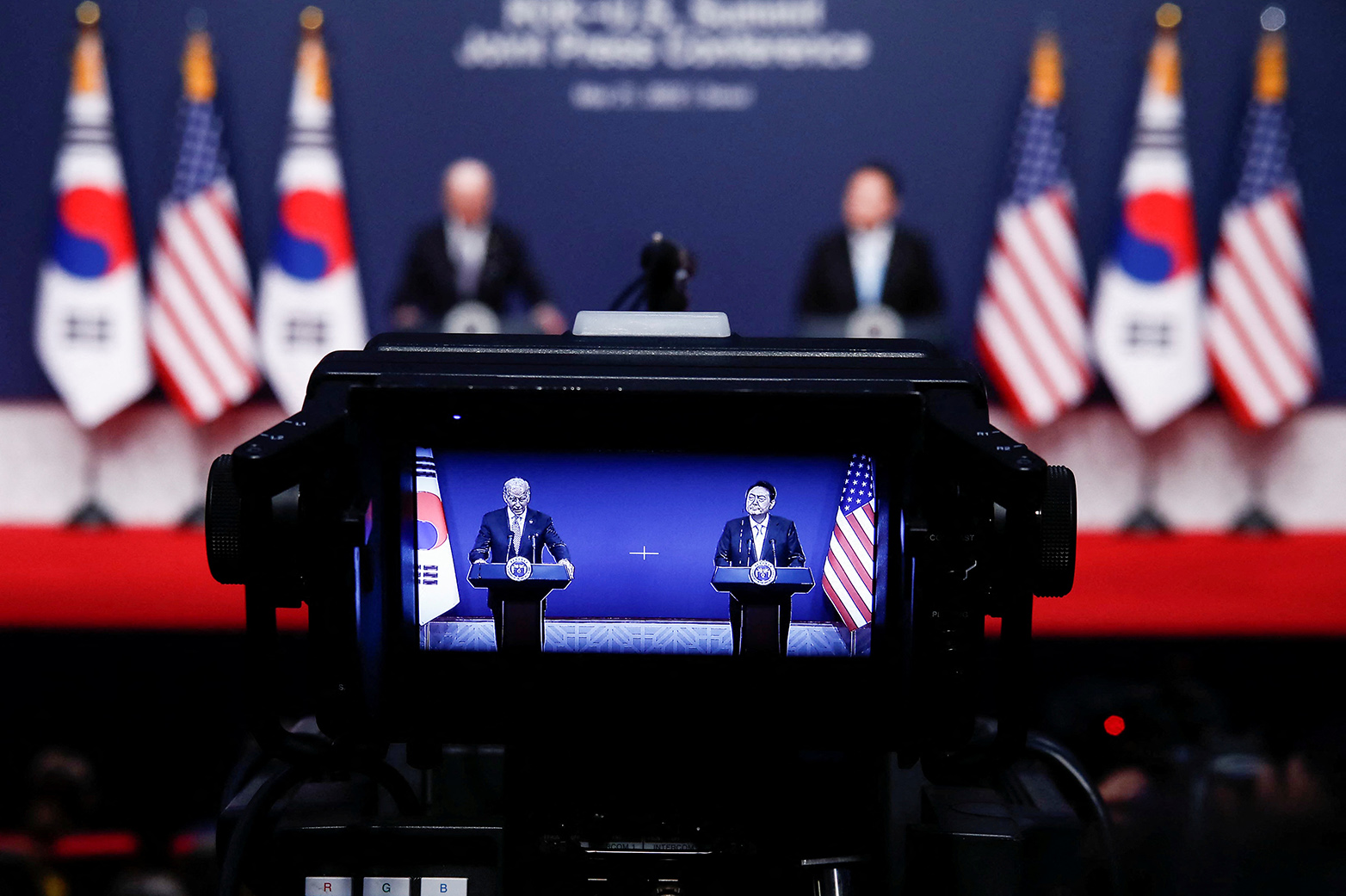Tense Triangle in Asia: The South Korea Factor
South Korea and its triangular relationship with the US and North Korea are critical for security and stability in Asia. Understanding South Korea’s shifting domestic and international outlook is important for European states, looking for new cooperation opportunities and partners in Asia, argues Linda Maduz in this CSS Policy Perspective.

US President Joe Biden and South Korean President Yoon Suk-yeol during a joint news conference at the Presidential office in Seoul, 21.05.2022. Jeon Heon-Kyun / REUTERS
Key Points
- The 2022 South Korean presidential elections, mainly decided by domestic political issues, will have repercussions for the wider region, affecting the dynamics of the Korean conflict as well as the US-China rivalry.
- Current US and South Korean approaches toward North Korea, more aligned again under the new South Korean president, struggle to meet new realities with a North Korea that has multiplied its nuclear weapon arsenal in the recent past and is strengthening ties with China and Russia.
- A strong US-South Korean deterrence posture should not preclude diplomatic engagement with North Korea, either bilaterally or multilaterally.